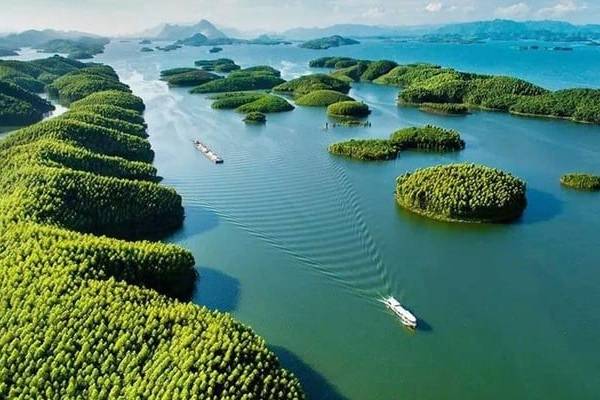Viet Nam faces significant challenges in managing water resources. However, with decisive actions in resource management, strict enforcement against violations, and close collaboration between agencies and sectors, the country is working to secure its water resources for future generations.
Strengthening enforcement of water resource violations
On the afternoon of February 19, at the Government Headquarters, Deputy Prime Minister Tran Hong Ha chaired a meeting to discuss the draft Decree on administrative sanctions for violations in the field of water resources — a crucial step toward strengthening the legal framework for more effective water resource management and protection.
The draft Decree comprises four chapters and 48 articles outlining specific violations, corresponding fines, remedial measures, and the authority of relevant agencies in handling offenses. Notably, any violations not covered by this Decree will be addressed under other applicable legal provisions.
Throughout the drafting process, authorities gathered feedback from ministries, sectors, and localities, carefully reviewing existing regulations to ensure consistency and coherence. The proposed amendments aim to balance avoiding the “criminalization” of administrative violations and maintaining a strong deterrent effect on individuals and organizations that breach water resource regulations.
The draft also retains adequate provisions from the 2012 Law on Water Resources while removing outdated rules and incorporating new regulations from the 2023 Law on Water Resources. This update is essential to reflect the current realities of water resource management, ensuring the legal framework remains relevant and robust in addressing emerging challenges.
 Viet Nam is facing the thread of losing its water resources. (Illustrative photo)
Viet Nam is facing the thread of losing its water resources. (Illustrative photo)Constructive feedback
At the meeting, the draft Decree received broad support from most ministries, sectors, and localities. However, several participants raised important points for clarification — particularly regarding the method for determining illegal profits gained from violations, such as cases where water exploitation exceeds licensed flow and capacity.
The Viet Nam Water Supply and Sewerage Association suggested adding regulations related to water supply plant planning and increasing penalties for illegal groundwater exploitation. Strengthening these measures is seen as essential to curbing the depletion of groundwater resources — a key factor contributing to land subsidence in many regions.
Additionally, a representative from the Ministry of Public Security underscored the importance of establishing data connectivity between agencies on penalties for water resource violations. This would enhance oversight and provide a foundation for imposing stricter measures, including the potential for criminal liability in cases of severe or repeated offenses.
A comprehensive approach to water resource management
At the meeting, Deputy Prime Minister Tran Hong Ha stressed the growing urgency of water security in Viet Nam . He highlighted the alarming decline in water quality across river basins, particularly in major urban areas, while the increasing demand for groundwater extraction raises the risks of land subsidence and saltwater intrusion.
The Deputy Prime Minister underscored the need for water resource management to be practical and results-driven, moving beyond formalities. He emphasized that the new decree should not only focus on handling violations but also prioritize preventive measures and early warnings to safeguard water resources sustainably.
A key feature of the draft decree is the classification of violations by severity, ensuring penalties and remedial actions are proportionate. This approach strengthens deterrence without imposing overly harsh punishments for minor infractions.
Deputy Prime Minister Tran Hong Ha urged drafting agencies to ensure the decree is both practical and effective by adopting a "life cycle" approach to water management — from protecting water sources to overseeing water supply systems.
Furthermore, he called for the use of scientific methods to accurately assess violations, preventing subjective judgments, and stressed the importance of leveraging technology to monitor and detect breaches in real-time.
Ultimately, the goal is to establish a sustainable water resource management system where all stakeholders — government agencies, businesses, and the public — share the responsibility of protecting and preserving Viet Nam’s vital water resources.